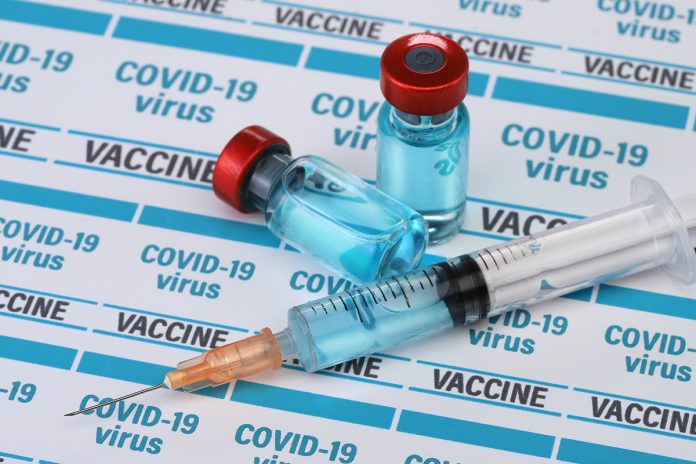Lauren Matelski, Jeremy MacMahon, and Pamela J. Lein from the University of California, Davis, weigh the risks associated with COVID-19 vaccines versus the benefits
As the COVID-19 pandemic continues, SARS-CoV-2 variants with unique profiles of virulence and transmissibility are emerging. These variants, also referred to as strains, arise when mutations occur in the viral nucleic acid that change viral characteristics. For example, the Delta variant of SARS-CoV-2 expresses a mutation in the nucleic acid encoding the spike protein that makes it more efficient at infecting host cells than the Alpha variant of SARS-CoV-2. Thus, the Delta variant is at least 40% more transmissible and more virulent than the Alpha strain. Data from the U.K. suggest that people infected with the Delta variant are twice as likely to be hospitalised compared to individuals infected with the Alpha strain. The infected population is also changing. Children too young to receive a COVID-19 vaccine (ages 6 months to 11 years) were previously thought to be resistant but now represent approximately 22% of infected individuals.
The more SARS-CoV-2 replicates (or the more people it infects), the more likely it is that mutations will occur. Vaccines are a critically important tool for minimising or slowing the viral spread. While COVID-19 vaccines remain highly effective in preventing severe disease, hospitalisation, and death due to the Delta variant, their efficacy in preventing infection or milder symptomatic illness may be reduced. However, breakthrough cases in vaccinated persons remain rare. According to an analysis published July 30 by the Kaiser Family Foundation using state-level data from 2021, the rate of breakthrough cases in fully vaccinated individuals was below 1%, and hospitalisation rates in this group ranged from 0 – 0.6%. In contrast, more than 90% of COVID-19 cases, hospitalisations, and deaths occurred among those who were unvaccinated or partially vaccinated. A report from the Centers for Disease Control and Prevention (CDC) using public health records from Los Angeles County, CA, found that infection and hospitalisation rates were 5 and 29 times higher, respectively, in unvaccinated patients compared to fully vaccinated patients on July 25, 2021, when the Delta variant was predominant.
Immunity
Waning immunity, particularly in those with compromised immune function, may explain increased numbers of breakthrough cases with the highly transmissible Delta variant. In Israel, most fully vaccinated people currently hospitalised with severe coronavirus disease are over the age of 60, have chronic illness, and received their second vaccine dose at least 5 months ago. In the U.S., the CDC reported that 74% of breakthrough infections resulting in hospitalisation or death occurred in seniors age 65 and older. The question of reduced vaccine efficacy over time, especially in immunocompromised populations, has led several countries, including Israel, France, Germany, and the U.S. to recommend a 3rd booster shot, with the goal of stimulating memory cells and increasing levels of neutralising antibodies.
Studies are also revealing differences between vaccine-induced immunity and natural immunity acquired through infection, including how viral variants are recognised. One study found that antibodies elicited by the Moderna mRNA vaccine have neutralising activity that is more targeted to the receptor-binding domain of the viral spike protein compared to antibodies acquired through infection. In a case-control study by the CDC using data collected in Kentucky during May and June 2021 before the Delta surge, being unvaccinated was associated with more than twice the odds of reinfection compared with being fully vaccinated. However, a study out of Israel (in preprint status) conducted when the Delta variant was dominant in that country suggests the opposite: vaccinated individuals had nearly a 7-fold increased risk for symptomatic reinfection and hospitalisation compared to previously infected individuals. Multiple lines of evidence suggest that a combination of infection and vaccination affords the strongest immune protection.
Regardless of immunity status, individuals who are infected by SARS-CoV-2 are at increased risk for adverse health events and complications, including not only acute respiratory distress syndrome (ARDS), myocarditis, thrombosis, embolisms, haemorrhage, but also abnormalities of the peripheral nervous system. The latter has been observed in SARS-CoV-2-infected, but otherwise healthy, young patients independent of symptom severity.
Rare side effects
With continued monitoring and study of COVID-19 vaccines, more information regarding the safety and possible complications of these vaccines is becoming available. Recently, Johnson & Johnson reported that in very rare cases, patients who receive the J&J vaccine may develop Guillain-Barré syndrome or thrombosis (0.0008% of the total vaccinated population), and Pfizer announced that in rare cases, patients who receive their mRNA vaccine may develop myocarditis. When compared to the percent of people who develop Guillain-Barré syndrome independent of vaccination (0.001%) or those who develop it while taking the most prescribed drug class in the U.S. (cholesterol-lowering medication: 1-7%), the risks associated with the COVID-19 vaccine are significantly outweighed by the benefits. Moreover, the flu-like symptoms that may result from vaccination can also occur with SARS-CoV-2 infection, and infection often presents with more severe symptoms and complications such as long-haul COVID and neurological problems.
On August 12, 2021, the CDC announced that mRNA vaccines are safe for pregnant women, with data showing no maternal or fetal adverse effects. Conversely, getting COVID-19 while pregnant significantly increases the chance of premature birth and is associated with poorer outcomes. Emerging reports also suggest that infection with SARS-CoV-2 decreases men’s fertility and increases erectile dysfunction, whereas there is no indication that COVID-19 vaccines decrease fertility in men or women.
COVID-19 vaccinations are saving lives. One study estimated that COVID-19 vaccinations prevented nearly 140,000 deaths in the U.S. by May 2021, and Public Health England calculated that vaccines have prevented over 24 million infections and 100,000 deaths as of August 20, 2021. In contrast, a recent report estimated that hospitalisation of unvaccinated patients cost the U.S. health system over $2 billion in just 2 months, June and July 2021. This pandemic will finally end when most of the population has immunity, whether through vaccination or infection, although human suffering and healthcare costs would be significantly decreased with earlier increased acceptance of vaccination.
Please note: This is a commercial profile











